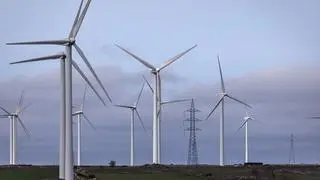Third-party B2B charging solution provider EVRE plans to invest ₹200-250 crore in setting up 800-1,000 commercial electric vehicle (EV) charging hubs in the next two years. Currently, it operates 120 charging hubs in eight cities.
Launched in 2017, it is a 100 per cent vertically-integrated EV charging company, serving as both charger OEM and charge point operator
Co-Founder Chandresh Sethia told businessline that the funding will be a mix of debt and equity for this expansion. “Going forward, the hubs that we are now creating are larger in terms of individual area, which would be greater than 25,000 sqft.”
Two verticals
The provider has two business verticals: one is OEM, via which it sells chargers to mostly the government, PSU, and government agencies such as discoms. The second vertical is the charge point operator.
“We are one of the largest fleet-charging players in the country. So, we are primarily focussed on commercial three-wheeler logistics fleets and a four-wheeler passenger fleet today,” he added.
Further, its current product portfolio consists of both hardware and software solutions.
On the hardware side, the company offers AC chargers in the range of 3-44 kilowatts (KW) and DC chargers in the range of 30-120 KW. Meanwhile, on the software side, it offers its own CMS platform, a mobile app, and a fleet solution for its fleet customers.
Future roadmap
Speaking about the company’s future roadmap and growth opportunities, Sethia indicated that beyond the domestic market, they are exploring markets in the European Union, South-East Asian countries, and West Asia. “We are looking for local partners globally, specifically in these three places that we are really interested in selling outside India,” he said.
In addition, it also plans to enter the highway segment of public charging and wants to create a large-scale charging infrastructure that will be different from what the current players are doing.
“We want to create large-scale, fast-charging highway infrastructure. Highway infrastructure is to create amenities and charging infrastructure from the ground up. So, we plan to tie up with a partner who creates these amenities on the highway,” he noted.
The highway infrastructure will not just be for personal mobility, but also for commercial buses and large trucks. “We are looking at starting with this after our series A — in the next calendar year,” Sethia said.







Comments
Comments have to be in English, and in full sentences. They cannot be abusive or personal. Please abide by our community guidelines for posting your comments.
We have migrated to a new commenting platform. If you are already a registered user of TheHindu Businessline and logged in, you may continue to engage with our articles. If you do not have an account please register and login to post comments. Users can access their older comments by logging into their accounts on Vuukle.